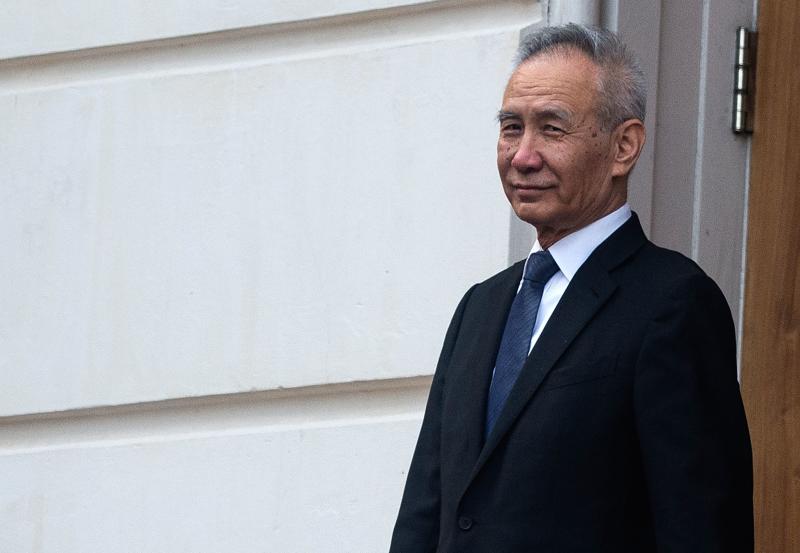China expresses regret over US tariff hike, vows countermeasures
Sign up now: Get insights on Asia's fast-moving developments

Chinese Vice-Premier Liu He leaves the Office of the United States Trade Representative after tariff negotiations in Washington DC on May 9.
PHOTO: AFP
BEIJING (REUTERS) - China on Friday (May 10) said it "deeply regrets" the United States' decision to increase tariffs on US$200 billion (S$273 billion) worth of Chinese goods to 25 per cent from 10 per cent, adding without elaborating that it would take necessary countermeasures.
China's Commerce Ministry said in a short statement that it hoped the US could meet China halfway and resolve the issue through cooperation and consultation.
The hike comes as top US and Chinese trade negotiators concluded the first of two days of talks in Washington on Thursday to try to rescue a close-collapsing deal aimed at ending a 10-month trade war between the world's two largest economies.
Chinese Vice-Premier Liu He, US Trade Representative Robert Lighthizer and US Treasury Secretary Steven Mnuchin talked for 90 minutes on Thursday and were expected to resume talks on Friday.
In a blizzard of early-morning tweets, Mr Trump defended his decision to slap the additional levies and said the tariffs would boost the US more than any trade deal.
"Tariffs will bring in FAR MORE wealth to our country than even a phenomenal deal of the traditional kind," Mr Trump wrote in a string of posts on Twitter.
"Talks with China continue in a very congenial manner - there is absolutely no need to rush," Mr Trump added. "We will continue to negotiate with China in the hopes that they do not again try to redo deal!"
With no action from the Trump administration to reverse the increase as negotiations moved into a second day, US Customs and Border Protection (CBP) imposed the new 25 per cent duty on affected US-bound cargo leaving China after 12.01am EDT (12.01pm Singapore time) on Friday.
Goods in the more than 5,700 affected product categories that left Chinese ports and airports before midnight will be subject to the original 10 per cent duty rate, a CBP spokesman said.
The grace period was not applied to three previous rounds of tariffs imposed last year on Chinese goods, which had much longer notice periods of at least three weeks before the duties took effect.
"This creates an unofficial window, potentially lasting a couple of weeks, in which negotiations can continue and generates a 'soft' deadline to reach a deal," investment bank Goldman Sachs wrote in a note.
"Given this detail, downside to sentiment might be slightly more muted than if the tariff increase came with a 'hard' deadline. This also leaves an opportunity for the two sides to reach an agreement in the next couple of weeks, though challenges remain."
President Donald Trump gave US importers less than five days' notice about his decision to increase the rate on the US$200 billion category of goods to 25 per cent, which now matches the rate on a prior US$50 billion category of Chinese machinery and technology goods.
The biggest Chinese import sector affected by the rate hike is a US$20 billion-plus category of Internet modems, routers and other data transmission devices, followed by about US$12 billion worth of printed circuit boards used in a vast array of US-made products.
Furniture, lighting products, auto parts, vacuum cleaners and building materials are also high on the list of products subject to the higher duties.
US stock futures fell and Asian shares pared gains after the US tariff hike.
E-mini futures for US S&P 500 slipped, last down 0.5 per cent in volatile trade. MSCI's broadest index of Asia-Pacific shares outside Japan was more than 1 per cent lower. Chinese markets were on midday break when the higher tariffs took effect.



